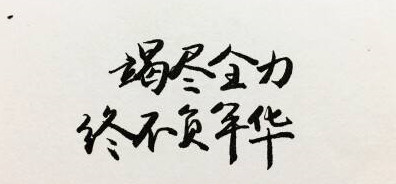 摘要:
英语中有几种从句2.定语从句定语从句(AttributiveClauses)在句中做定语,修饰一个名词或代词,被修饰的名词,词组或代词即先行词。定语从句通常出现在先行词之后,由关系...
摘要:
英语中有几种从句2.定语从句定语从句(AttributiveClauses)在句中做定语,修饰一个名词或代词,被修饰的名词,词组或代词即先行词。定语从句通常出现在先行词之后,由关系... 英语中有几种从句
2.定语从句
定语从句(Attributive Clauses)在句中做定语,修饰一个名词或代词,被修饰的名词,词组或代词即先行词。定语从句通常出现在先行词之后,由关系词(关系代词或关系副词)引出。
关系代词有:who, whom, whose, that, which等。
关系副词有:when, where, why等。
2.1 关系代词引导的定语从句
关系代词所代替的先行词是人或物的名词或代词,并在句中充当主语、宾语、定语等成分。关系代词在定语从句中作主语时,从句谓语动词的人称和数要和先行词保持一致。
1)who, whom, that
这些词代替的先行词是人的名词或代词,在从句中所起作用如下:
Is he the man who/that wants to see you?
他就是你想见的人吗?(who/that在从句中作主语)
He is the man whom/ that I saw yesterday.
他就是我昨天见的那个人。(whom/that在从句中作宾语)
2) Whose 用来指人或物,(只用作定语, 若指物,它还可以同of which互换), 例如:
They rushed over to help the man whose car had broken down. 那人车坏了,大家都跑过去帮忙。
Please pass me the book whose (of which) cover is green. 请递给我那本绿皮的书。
3)which, that
它们所代替的先行词是事物的名词或代词,在从句中可作主语、宾语等,例如:
A prosperity which / that had never been seen before appears in the countryside. 农村出现了前所未有的繁荣。(which / that在句中作宾语)
The package (which / that) you are carrying is about to come unwrapped. 你拿的包快散了。(which / that在句中作宾语)
2.2 关系副词引导的定语从句
关系副词可代替的先行词是时间、地点或理由的名词,在从句中作状语。
1)when, where, why
关系副词when, where, why的含义相当于"介词+ which"结构,因此常常和"介词+ which"结构交替使用,例如:
There are occasions when (on which) one must yield. 任何人都有不得不屈服的时候。
Beijing is the place where (in which) I was born. 北京是我的出生地。
Is this the reason why (for which) he refused our offer? 这就是他拒绝我们帮助他的理由吗?
2)that代替关系副词
that可以用于表示时间、地点、方式、理由的名词后取代when, where, why和"介词+ which"引导的定语从句,在口语中that常被省略,例如:
His father died the year (that / when / in which) he was born. 他父亲在他出生那年逝世了。
He is unlikely to find the place (that / where / in which) he lived forty years ago. 他不大可能找到他四十年前居住过的地方。
2.3 判断关系代词与关系副词
方法一: 用关系代词,还是关系副词完全取决于从句中的谓语动词。及物动词后面无宾语,就必须要求用关系代词;而不及物动词则要求用关系副词。例如:
This is the mountain village where I stayed last year.
I'll never forget the days when I worked together with you.
判断改错(注:先显示题,再显示答案,横线;用不同的颜色表示出。)
(错) This is the mountain village where I visited last year.
(错) I will never forget the days when I spent in the countryside.
(对) This is the mountain village (which) I visited last year.
(对) I'll never forget the days (which) I spent in the countryside.
习惯上总把表地点或时间的名词与关系副词 where, when联系在一起。此两题错在关系词的误用上。
方法二: 准确判断先行词在定语从句中的成分(主、谓、宾、定、状),也能正确选择出关系代词/关系副词。
例1. Is this museum ___ you visited a few days age?
A. where B. that C. on which D. the one
例2. Is this the museum ____ the exhibition was held.
A. where B. that C. on which D. the one
答案:例1 D,例2 A
例1变为肯定句: This museum is ___ you visited a few days ago.
例2变为肯定句: This is the museum ___ the exhibition was held.
在句1中,所缺部分为宾语,而where, that, on which都不能起到宾语的作用,只有the one既做了主句的表语,又可做从句的宾语,可以省略关系代词,所以应选D。
而句2中, 主、谓、宾俱全,从句部分为句子的状语表地点,既可用副词where,又因 in the museum词组,可用介词in + which 引导地点状语。而此题中,介词on 用的不对,所以选A。
关系词的选择依据在从句中所做的成分,先行词在从句中做主、定、宾语时,选择关系代词 (who, whom, that, which, whose); 先行词在从句中做状语时,应选择关系副词 ( where 地点状语,when 时间状语,why 原因状语) 。
2.4 限制性和非限制性定语从句
1) 定语从句有限制性和非限制性两种。限制性定语从句是先行词不可缺少的部分,去掉它主句意思往往不明确;非限制性定语从句是先行词的附加说明,去掉了也不会影响主句的意思,它与主句之间通常用逗号分开,例如:
This is the house which we bought last month. 这是我们上个月买的那幢房子。(限制性)
The house, which we bought last month, is very nice.这幢房子很漂亮,是我们上个月买的。(非限制性)
2) 当先行词是专有名词或物主代词和指示代词所修饰时,其后的定语从句通常是非限制性的,例如:
Charles Smith, who was my former teacher, retired last year. 查理·史密斯去年退休了,他曾经是我的老师。
My house, which I bought last year, has got a lovely garden. 我去年买的的那幢房子带着个漂亮的花园。
This novel, which I have read three times, is very touching. 这本小说很动人,我已经读了三遍。
3) 非限制性定语从句还能将整个主句作为先行词, 对其进行修饰, 这时从句谓语动词要用第三人称单数,例如:
He seems not to have grasped what I meant, which greatly upsets me. 他似乎没抓住我的意思,这使我心烦。
Liquid water changes to vapor, which is called evaporation. 液态水变为蒸汽,这就叫做蒸发。
说明:关系代词that和关系副词why不能引导非限制性定语从句。
2.5 介词+关系词
1)介词后面的关系词不能省略。
2)that前不能有介词。
3) 某些在从句中充当时间,地点或原因状语的"介词+关系词"结构可以同关系副词when 和where 互换。
This is the house in which I lived two years ago.
This is the house where I lived two years ago.
Do you remember the day on which you joined our club?
Do you remember the day when you joined our club?
2.6 as, which 非限定性定语从句
由as, which 引导的非限定性定语从句,as和which可代整个主句,相当于and this或and that。As一般放在句首,which在句中。
As we know, smoking is harmful to one's health.
The sun heats the earth, which is very important to us.
典型例题
1)Alice received an invitation from her boss, ___came as a surprise.
A. it B. that C. which D. he
答案C. 此为非限定性从句,不能用 that修饰,而用which.,it 和he 都使后句成为句子,两个独立的句子不能单以逗号连接。况且选he句意不通。
2)The weather turned out to be very good, ___ was more than we could expect.
A. what B. which C. that D. it
答案B。which可代替句子,用于非限定性定语从句,而what不可。That 不能用于非限定性定语从句,it不为连词,使由逗号连接的两个句子并在一起在英语语法上行不通。
3)It rained hard yesterday, ____ prevented me from going to the park..
A. that B. which C. as D. it
答案B.
as 和which在引导非限制性定语从句时,这两个关系代词都指主句所表达的整个意思,且在定语从句中都可以作主语和宾语。但不同之处主要有两点:
(1) as 引导的定语从句可置于句首,而which不可。
(2) as 代表前面的整个主句并在从句中作主语时,从句中的谓语必须是系动词;若为行为动词,则从句中的关系代词只能用which.。
在本题中,prevent由于是行为动词,所以正确选项应为B。
As 的用法
例1. the same… as;such…as 中的as 是一种固定结构, 和……一样……。
I have got into the same trouble as he (has).
例2. as可引导非限制性从句,常带有'正如'。
As we know, smoking is harmful to one's health.
As is know, smoking is harmful to one's health.
As是关系代词。例1中的as作know的宾语;例2中,它充当从句的主语,谓语动词know要用被动式。
2.7 先行词和关系词二合一
1)Whoever spits in public will be punished here.
(Whoever 可以用 anyone who 代替)
2)The parents will use what they have to send their son to technical school.
(what 可以用all that代替)
2.8 what/whatever; that/what; who/whoever
1)what = the thing which;whatever = anything
What you want has been sent here.
Whatever you want makes no difference to me.
2) who= the person that whoever= anyone who
(错)Who breaks the law will be punished.
(错)Whoever robbed the bank is not clear.
(对)Whoever breaks the law will be punished.
(对)Who robbed the bank is not clear.
3) that 和 what
当that引导定语从句时 ,通常用作关系代词,而引导名词性从句时,是个不充当任何成分的连接词。宾语从句和表语从句中的that常可省略。What只能引导名词性从 句, 用作连接代词,作从句的具体成分,且不能省略。
I think (that) you will like the stamps.
What we need is more practice.
2.9 关系代词that 的用法
1)不用that的情况
a) 在引导非限定性定语从句时。
(错) The tree, that is four hundred years old, is very famous here.
b) 介词后不能用。
We depend on the land from which we get our food.
We depend on the land that/which we get our food from.
2) 只能用that作为定语从句的关系代词的情况
a) 在there be 句型中,只用that,不用which。
b) 在不定代词,如:anything,  nothing, the one, all, much, few, any, little等作先行词时,只用that,不用which。
nothing, the one, all, much, few, any, little等作先行词时,只用that,不用which。
c) 先行词有the only, the very修饰时,只用that。
d) 先行词为序数词、数词、形容词最高级时,只用that。.
e) 先行词既有人,又有物时。
举例:
All that is needed is a supply of oil.
所需的只是供油问题。
Finally, the thief handed everything that he had stolen to the police.
那贼最终把偷的全部东西交给了警察。
英语中从句是什么
在现代英语的语法中,从句指复合句中不能独立成句,但具有主语部分和谓语部分,由that、who、whom、when、why、where、how、which等引导词引导的非主句部分。
从句不能单独成句,但它也有主语部分和谓语部分,是一个特殊句子,就像一个句子一样。所不同在于,从句须由一个关联词引导。

给你百科链接,里面有很多例句:
http://baike.baidu.com/link?url=s38HzFegF8m6KYKc34pSR9sl9WUceAblw4QoMAU-RjEtQ3CfDc4muzDbXwh9BC6PfoRh3B76hv-u26Y67HVhuCrZmHFS21Zge73RaXC-8Pa
英语的从句
这个应该是表语从句。BE动词后面跟的都是表语。实义动词后面的才是宾语。从句有两大类:
限定性从句
非限定性从句
谓语动词是与非谓语动词相对应的概念.两者都是动词,但是前者是作谓语成分,后者不能作谓语成分.而谓语成分就是用来说明主语的动作或状态的,一般由动词或短语动词承担.
比如:我看电视.”看”就是谓语.
你正在上网.”上网”也是谓语.
再举几个英语句子吧:I see a girl.我看见一个女孩.”看见””see"就是这个句子的谓语.而see也是个动词,所以就叫做谓语动词.She is very beautiful.她很漂亮."is"就是这个句子的谓语,也是动词.
从句是指用于复合句中担当某个句子成分的主谓结构。虽说从句自身的句子结构是完整的, 但是它不能视为独立的句子,因为它离开了主语就无法独立、完整地表达意思。按其所能表达的意义而言,它相当于一个词或是一个词组.例如: 1) Because they talk at home while the television is on , many people think they can talk at movies as well . (状语从句)许多人在家里是边看电视边谈话,所以他们认为在电影院也可以如此。 2) Whether he comes or not doesn't make any difference to me . (主语从句) 他来与不来对我都一样。 3)There is disagreement among economists about what money is and how money is measured(宾语从句)什么是货币以及怎样计量货币经济学家之间存有分歧。 4) China is not what it used to be . (表语从句)中国不是它过去的样子了。 5) Is there any proof that the food of plant differs from that of animals ? (同位语从句)有没有什么证据说明植物性食品不同于动物性食品? 6) Taxes consist of money that people pay to support their government . (定语从句) 税款是人们支持政府而交的钱。 如果将上面的复合句中所有的从句都独立出来,那将是这样的: 1) Because they talk at home while the television is on 2) Whether he comes or not 3) what money is and how money is measured 4) what it used to be 5) that the food of plant differs from that of animals 6) that people pay to support their government 我们很容易看出,上面的所有这些句子既不是陈述句、疑问句,也不是祁使句,更不是感叹句。也就是说,它们不是独立的句子;也只有在附属于主句后才能获得意义如下:1)因为许多人在家里是边看电视边谈话 2)他来与不来 3)什么是货币以及怎样计量货币 4)它过去的样子5)植物性食品不同于动物性食品6)人们支持政府而交的上面的这些句子在我们中文里如同是人们常说的"半截话";在英文中也就是个"词或词组"了。 B. 我们虽然说过,从句自身的句子结构基本是完整的,但是它不同于"独立句子"的是--每个从句的最前面都好象"戴了顶帽子"即:从属关系词。由此可以看出,从句的另一个特点是:从属关系词总是立于从句之首. C. 从句的再一个特点是:一般说来(除少数倒装的情况外),从句中的语序应该是正常语序。 D. 关于从句种类的划分有两种方法:按从句的词性划分和按从句的句子功能划分。如果按从句的词性划分,从句可分为三种:名词从句、形容词从句和副词从句。如果按从句的句子功能划分(也就是按从句在句子中所担任的成分来划分),从句可分为:主语从句、宾语从句、 表语从句、同位语从句、定语从句和状语从句。其实,这两种划分从句的方法在逻辑上是一致的.我们知道,能在句子里充当主语、宾语、表语和同位语的往往是名词、代词等,所以名词从句涵盖了主语从句、宾语从句、表语从句和同位语从句。形容词和副词常分别在句中担当定语和状语,所以,形容词从句和副词从句其实分别是定语从句和状语从句。 名词从句名词从句在句中是一个相当于名词的主谓结构。我们在前面说过,名词从句含盖了主语从句、宾语从句、表语从句和同位语从句。连接这些从句与主句的关系词主要有三类: 1.从属连词:that(无有词义) , whether(是否) ,if (是否) 2.关系代词:who(谁,主格) , whom(谁,宾格),whose谁的,所有格) , what(什么),which(哪个,哪些) 3.关系副词:when(什么时候) where(什么地方)why(为什么) , how(怎样) 名词从句中的从属连词在从句里不担任任何成分,只起连接的作用;而关系代词和关系副词不仅仅是起连接的作用,而且还在从句里担任一定的成分;关系代词常在从句中担任主语、宾语或表语等成分;关系副词常在从句中担任状语。另外,在使用上面的这些关系词时,有几个问题值得我们注意:首先,只能用whether而不能用if的情况. 1)引导主语从句,例如: Whether we'll make a loan for the project has not been decided .(正确)我们是否要为这个项目还没有定下来。 OR: It has not been decided whether we'll make a loan for the project . (正确) If we'll make a loan for the project has not been decided .(错误) OR: It has not been decided if we'll make a loan for the project . (错误) 2)作介词的宾语,例如: I have no idea about whether I can raise the money for buying a car . (正确)我不知道我是否能为买车筹措到资金。 I have no idea about if I can raise the money for buying a car . (错误) 3)后接不定式 ,例如: He didn't know whether to go all himself first or wait for her here.(正确)他不知道是他自己先去还是在这儿等她。 He didn't know if to go all himself or wait for her here . (错误) 4)后接or not ,例如: We wonder whether they'll come in time or not.(正确) 我们担心他们会不会准时到。 We wonder if they'll come in time or not . (错误)其次,what引导的名词从句表达的意思是"……所……的"。这个"所怎么的"定义根据"从句谓语的动作意义"而定。例如: I don't understand what you said.我不理解你所说的话。 What he needs is to practice more.他所需要的是勤于练习。 Money is what she is really after.金钱是她所真正追求的东西。 People have different ideas about what happiness means . 人们对于幸福的含义有不同见解。最后,要了解 -ever = no matter ,用于表示强调,意为"无论……"。也就是说: whatever = no matter what(无论什么) whoever = no matter who(无论谁) whichever = no matter which(无论那个) whenever =no matter when (无论何时) wherever = no matter where(无论何地) however = no matter how (无论怎样) A 主语从句用作主语的主谓结构称之为主语从句。例如: Whether he'll come or not remains a question . 他是否会来依然是一个问题。 Whoever says that is not allowed .无论谁这样说都是不允许的。 That she reads English aloud every morning helps her a lot in the improvement of her English study . 她每天早晨朗读英文对提高她的英语学习起了很大的作用。 要点提示在使用主语从句中,有几个问题值得我们注意: 1)尽管主从连词that在主语从句中没有任何意义,但一般不能省略。 That there is no elevator in the building is the critical inconvenience .这幢楼里没有电梯是极大的不便之处。 It is necessary (that) he have his further study incollege.(当主语从句在后面时,连词that可以省去)他在大学进一步深造是完全必要的。 2)为了保持句子平衡或在正式文体中,常用先行It代替主语从句而将主语从句置于句末。 It remains a question Whether he'll come or not . 他是否会来,依然是一个问题。 It is not allowed Whoever says that. 无论谁这样说都是不允许的。 3)在It + be +形容词/ 名词 + that从句的结构中,由于某些形容词/ 名词的原因,that从句中的谓语动词要用虚拟式。这类形容词/ 名词常见的有: essential(绝对必要的), important(重要的), advisable(明智的), desirable(希望能够的), imperative(必须的), natural(自然的), necessary必要的), regretful(遗憾的), strange(奇怪的), proper(适当的), urgent(紧急的), duty(义务、责任), a pity (遗憾), no wonder(难怪), a regret(遗憾)。例如: It is strange that he ( should ) say so . 他居然会这样说,真是奇怪。 It is a great pity that you ( should ) think so . 他居然会这样想,真是一件憾事。 It is natural that a bird ( should ) rest in trees . 鸟在树上安歇是很自然的。 It is a wonder that he should have passed the exam. 他这次考试居然会及格,真是个奇迹。 4)以what引导的主语从句常用于句首表示强调。 What they need now is financial aid . 他们现在所需要的是经济援助。 What she thinks of me doesn't mean much to me . 她怎么样看我,对我来说无所谓。 What you have said hurt her a lot .你所说的话对她伤害很大。 B 宾语从句用作谓语动词、介词以及非谓语动词形式的宾语的主谓结构称之为宾语从句。也就是说,只要是用一个主谓结构去充当宾语,那么这个主谓结构就称为宾语从句。 例如: I believe that he will find a job in that publisher .(作谓语动词的宾语)我相信,他一定会在那家出版社找到工作。 He laughed at what they said . (作介词的宾语)她对他们说的话,一笑置之。 要点提示在使用宾语从句中,有几个问题值得我们注意: 1)宾语从句与主句的时态一致性问题这种一致性的要求,只有当主句的谓语动词用于"过去时区"的时候才存在。凡是在"过去时区"内的各种不同时态都在其中。另外,这种一致性只要求宾语从句的谓语动词也用于"过去时区"即可,至于用什么样具体的时态就要依从句的需要而定了。 He had told me that he would join the club sometime . 他曾经告诉我说,他会在某个时候参加俱乐部的。 I remembered that I had met him somewhere . 我记得我曾在哪儿见过他。 She thought that she would have finished what she was doing by the end of the month . 她认为在那个月底她将完成她手头上做的事。 2)if引导的宾语从句不能作介词的宾语,而只有用whether引导才行。这一点在上面刚刚讲过.(略) 3)某些动词后面,宾语从句的谓语要求用虚拟式。这一点已在"虚拟语气"一章中讨论过了,本章只作简单的复习。这类要求宾语从句的谓语用虚拟式的动词,常见的有:command(命令), demand(要求), desire(希望), insist(坚持), order(命令), propose(提议), recommend(推荐), request(要求), require(要求), suggest(建议),等。例如: He proposed that we ( should ) set a dead line for the complement of the plan . 他提议拟定一个执行计划的期限。 C 表语从句在句子中担当表语的主谓结构称之为表语从句。它常位于句中联系动词或是起联系动词作用的动词之后.例如: The problem is where we can hold our meeting . 问题是我们可以在哪儿举行会议。 It seems that everything goes smoothly .似乎一切都进行得很顺利。 The cause is that the temperature of water is lower that needed . 其原因是水的温度低于所需要的温度。 That is what he really wants .那就是他真想要的东西。 D 同位语从句同位语从句就是在句子中担当同位语的主谓结构.在使用同位语从句时要特别注意:尽管主从连词that在同位语从句中没有任何意义,但却不能省略。另外,同位语从句常用于下面这些名词的后面(其中,斜体字的名词后面所接的同位语从句中要用虚拟语气): fact(事实), fear(担心、害怕), belief(信念,意见), evidence(证据), hope(希望), idea(想法) news(新闻), doubt(怀疑), suggestion(建议), motion(动议), proposal(提议), order(命令), recommendation(推荐),等等。例如: There is the news that an American delegation will arrive in Beijing tomorrow afternoon . 有消息说一个美国代表团将于明天下午抵达北京。 Is there any proof that the food of the plant differs from that of animals ? 是否有任何证据可以说明植物性的食物不同于动物性的食物呢? We all know the fact that organization helps memorization. 我们都知道这样一个事实:把要记忆的材料组织起来有助于记忆。 What do you think of his proposal that we ( should ) put on a play at the English evening ? 他建议我们在英语晚会上演一个剧,你觉得怎么样?
延续性动词
延续性动词表示行为或过程能持久地继续下去或能产生持久的影响。这类动词有:contain,have,hold, lie,live,make,sit,rain,sleep,stand,study,wait, wear,work等。此外,表示状态、感情、思维等动词,如:believe,consider,hate,hope,know,like,love,respect,think,understand,wish等也属延续性动词。要表示状态和延续性动作时必须要用延续性动词。如:
错:This book has been put on the desk for a week.
对:This book has been lying on the desk for a week.
这本书已经在桌子上放一个星期了。
错:Men put on suits when they attend meetings.
对:Men wear suits when they attend meetings.
男人在开会的时候穿西装。









